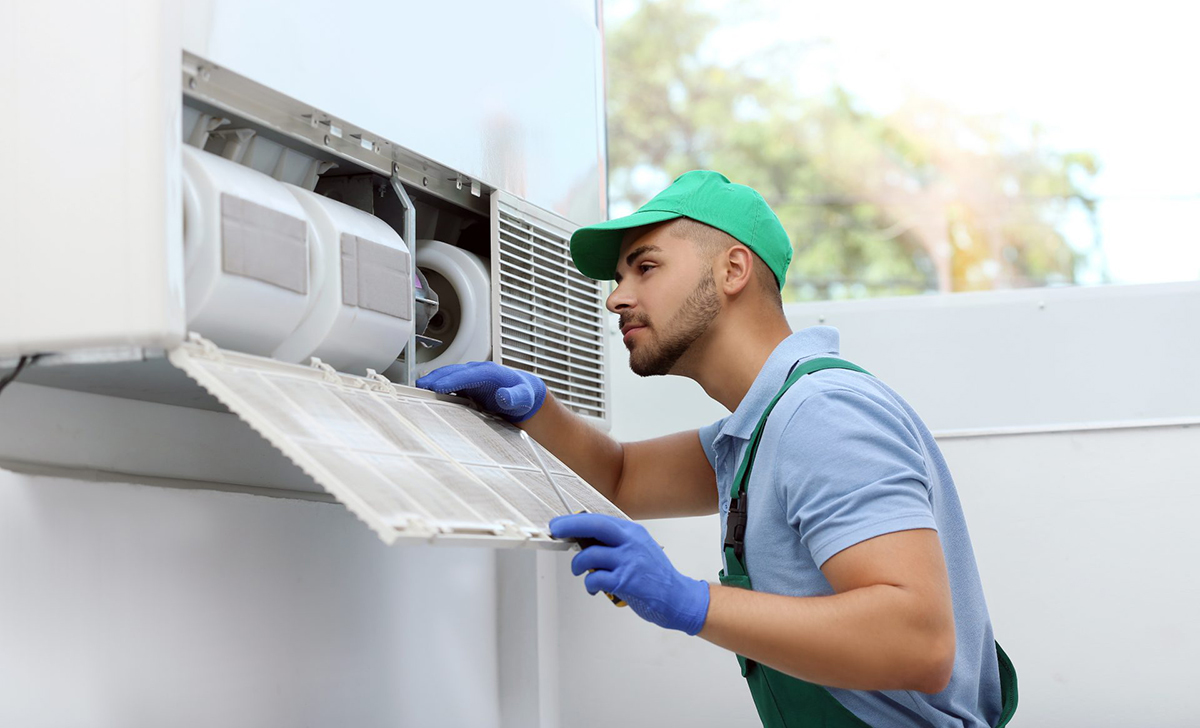HVAC preventative maintenance is a proactive strategy to protect your investment and extend the lifespan of heating, ventilation and air conditioning systems. It includes regular inspections, cleaning, lubrication, and adjustments. It reduces downtime, extends the life of equipment, cuts energy costs, and optimizes system efficiency.
It also helps ensure compliance with warranty requirements.
Scheduled Checkup
In general, a commercial HVAC system will last longer with routine maintenance. It can also prevent unnecessary repair costs and expensive replacement bills. According to a Pacific Partners Consulting Group study, every dollar worth of deferred maintenance can cost as much as 10 times the amount in capital renewal expenses later on.
Keeping an eye out for small issues like dirty air filters, low refrigerant levels, or ductwork problems during inspections allows technicians to catch and correct these issues before they get worse. This reduces downtime and the need for emergency repairs from property occupants.
Using an asset management system to plan maintenance schedules can help managers avoid a never-ending backlog of tasks and keep all assets running smoothly year round. Maintenance software helps with scheduling by defining timelines and assigning tasks to technicians. It can also make it easier for you to keep up with routine maintenance by sending reminders. This means fewer service calls for you and more happy tenants for your business or facility.
Preventative Maintenance
In the simplest terms, preventative maintenance is the routine work done to keep physical assets running smoothly. It includes everything from replacing filters and lubricating moving parts to cleaning and adjusting the thermostat. This helps ensure a high level of performance and a comfortable environment for building occupants.
HVAC preventative maintenance can also catch small issues before they become disruptive breakdowns that interfere with recreation programming. Parks and rec agencies need to develop an effective plan to check and repair their HVAC systems on a regular basis, so they are ready for the summer heat and winter chill.
An investment in HVAC preventative maintenance can pay off through energy savings, extended system lifespan and better indoor air quality. The cost of maintaining the system is much less than repairing or replacing it after a breakdown occurs. Investing in a preventative maintenance plan is like getting an oil change for your car; the upfront costs can be offset by reducing repairs, fuel bills and replacement costs.
Preventative Repairs
A well-functioning HVAC system is critical to the operation of a business. When it goes down, it can lead to unhappy customers, higher energy bills, and even health hazards from mold and dust. Thankfully, with a comprehensive maintenance plan, you can prevent these issues and keep your facility running smoothly.
HVAC preventative maintenance catches minor damages before they become costly repairs and replacements. It also ensures that the HVAC is running at peak performance and requires less energy to operate. This can reduce your energy costs by up to 30%.
A poorly-performing HVAC system forces the unit to work overtime in order to produce the same level of heating and cooling. This will consume more fuel and therefore increase your energy costs. Moreover, it will cause the equipment to wear down quickly and require expensive replacements. A high-performing system is more sustainable and will last longer. It also improves air quality which cuts down on the spread of germs and allergens in your facilities.
Annual Inspection
A well-maintained system improves air quality, cutting down on the spread of germs and illnesses in a property. It also costs less to operate because it runs more efficiently. The HVAC unit will not need expensive repair work as frequently, saving money in the long run. Additionally, many HVAC manufacturers’ warranties require that the system is maintained to remain valid.
During an annual inspection, the technician will check for damage, potential hazards and other issues in the ductwork, electrical connections, thermostat, fan, blower motor, and more. They’ll replace or clean filters and lubricate the motor to reduce friction, which can help extend its lifespan.
Having an HVAC preventive maintenance schedule is crucial to maximizing energy efficiency, prolonging the life of the equipment, and keeping tenants happy. Using an HVAC maintenance software solution can help you manage your preventative maintenance schedule and find the right contractor to complete it. Read our blog to learn more about planning and executing a successful maintenance program.


